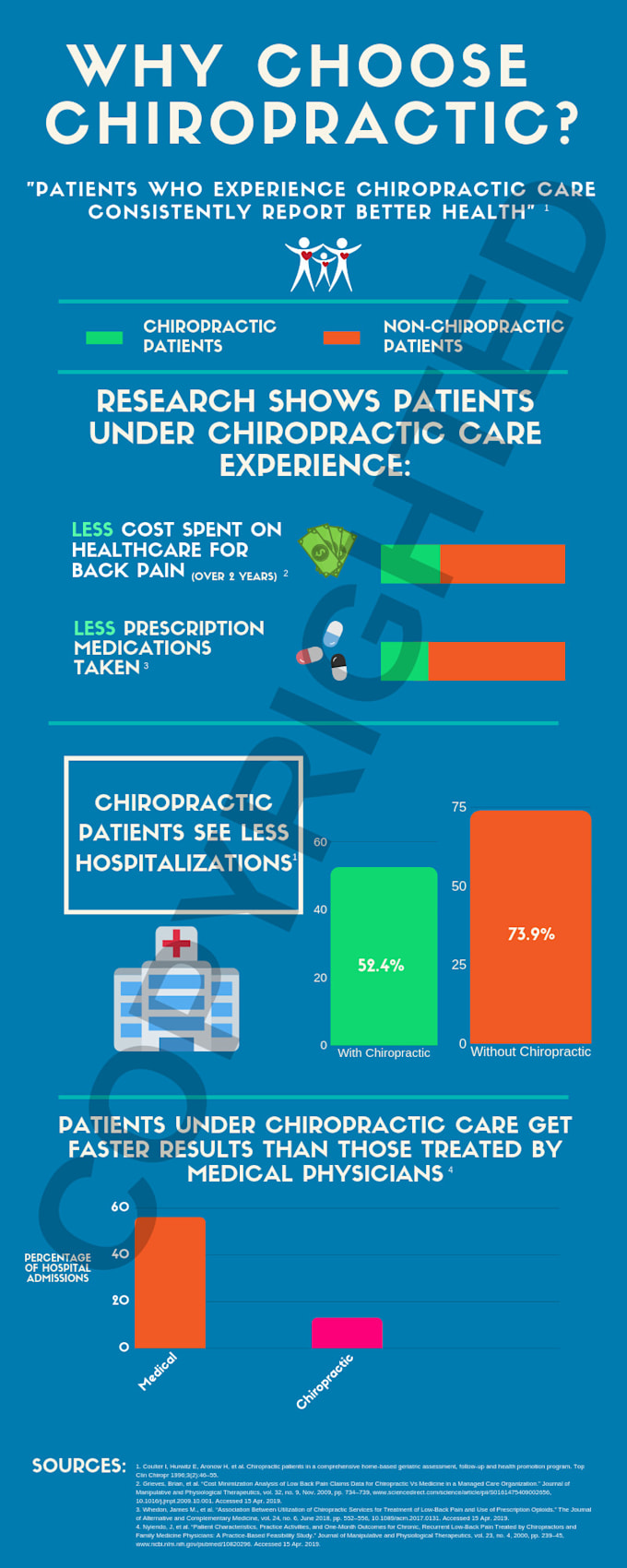The Influence Of Diet Regimen On Pain In The Back Management: Foods To Integrate And Foods To Omit
The Influence Of Diet Regimen On Pain In The Back Management: Foods To Integrate And Foods To Omit
Blog Article
Write- please click the next document Composed By-Cochrane Sharpe
When it comes to managing your pain in the back, the food options you make can substantially affect exactly how you feel daily. Think of being able to reduce your discomfort merely by readjusting what you consume. By understanding the function of nourishment in pain in the back management and knowing which foods to incorporate or stay away from, you can take positive steps towards a healthier and a lot more comfy lifestyle. The link between nourishment and back health is more profound than you might realize-- allow's discover exactly how particular foods can either relieve or intensify your neck and back pain.
Significance of Nutrition in Neck And Back Pain
Nutrition plays a critical duty in managing neck and back pain. Your diet plan can dramatically impact swelling degrees and total pain levels in your back. Eating a balanced diet rich in nutrients like vitamins D and K, calcium, magnesium, and omega-3 fats can help reduce swelling and reinforce bones, which are vital for back health and wellness.
Furthermore, keeping a healthy and balanced weight through appropriate nourishment can reduce anxiety on your spinal column, reducing the danger of back pain.
Furthermore, specific nutrients like antioxidants found in vegetables and fruits can aid deal with oxidative stress and promote healing in the body, consisting of the back muscle mass and back.
On the other hand, consuming too much quantities of refined foods, sugary beverages, and unhealthy fats can add to swelling and weight gain, worsening pain in the back.
Foods to Eat for Back Health
To sustain a healthy and balanced back, including nutrient-rich foods right into your daily meals is key. Including https://personal-injury-chiroprac73950.azzablog.com/30391378/integrate-the-shocking-connection-between-chiropractic-treatment-and-mental-health-and-wellness-revealing-how-spine-modifications-may-hold-the-secret-to-a-balanced-mind-body-equilibrium in antioxidants like berries, spinach, and kale can help in reducing inflammation in your back, relieving discomfort and pain. Omega-3 fats located in fatty fish such as salmon and mackerel have anti-inflammatory buildings that can profit your back health and wellness.
Additionally, taking in nuts and seeds like almonds, walnuts, and chia seeds provides important nutrients like magnesium and vitamin E, which sustain muscular tissue function and decrease oxidative stress and anxiety. Incorporating lean healthy proteins such as poultry, turkey, and tofu can aid in muscular tissue repair work and upkeep, advertising a strong back.
Do not fail to remember to consist of dairy or fortified plant-based options for calcium to support bone health and wellness. Lastly, moisten with lots of water to keep your spine discs moisturized and functioning ideally. By including these nutrient-dense foods in your diet regimen, you can nourish your back and support overall spinal health.
Foods to Stay Clear Of for Pain In The Back
Opt for avoiding refined foods high in sugarcoated and trans fats when seeking relief from neck and back pain. These kinds of foods can add to swelling in the body, which may intensify back pain. Say no to sweet snacks like candy, pastries, and sweet drinks, as well as junk food products like hamburgers, french fries, and fried poultry that are frequently filled with trans fats.
Additionally, steer clear of foods including high levels of polished carbohydrates, such as white bread, pasta, and pastries, as they can surge blood sugar level degrees and possibly get worse inflammation in the body.
It's likewise a good idea to restrict your consumption of foods high in saturated fats, like red meat and full-fat dairy products, as they can contribute to swelling. Refined foods like delicatessens meats, chips, and packaged snacks are often high in saturated fats and should be eaten in small amounts.
Verdict
In conclusion, taking note of your diet plan and making smart food options can have a substantial impact on taking care of pain in the back. By including nutrient-rich foods like berries, fatty fish, nuts, and lean proteins, and avoiding refined and sugary items, you can help in reducing swelling and support on the whole back wellness. Bear in mind, what you consume plays a critical function in how you really feel, so make certain to prioritize your nutrition for a much healthier back.
